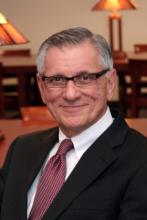What Is It
More than any other President, Abraham Lincoln is known for his words, from the Lincoln-Douglass debates to the second inaugural address, as well as his deeds. What was Lincoln's basic philosophy, and did it change over the course of his Presidency? Ken and John welcome back Chicago Public Radio's Resident Philosopher, Al Gini, to celebrate the bicentennial of Lincoln, the man and his ideas.
Listening Notes
In the first segment of the show, Ken and John start exploring the religious and political ideas that animated Lincoln’s actions and the philosophy underlying his rhetoric. John questions the rhetoric of Lincoln’s Gettysburg address, his decision to go to war and his understanding of slavery. Much of what we know about Lincoln is mired in contradictions: his belief in government by the people while deciding to take our nation to war in order to preserve the Union, his personal secularism (or maybe even atheism) in the context of deeply religious themes in this political rhetoric, his deep commitment to civil liberties as he suspended habeas corpus, closed newspapers and sent Sherman on his infamous march through Georgia. The list goes on as Ken and John discuss the options Lincoln was presented with in making his momentous decisions, his commitment to learning in spite of a complete lack of formal schooling, his philosophy and his rhetoric.
Guest Al Gini describes the subtleties of Lincoln’s thinking and the difficulty of getting beyond our 16th President’s iconic status to understand the underpinnings of his philosophy. Gini uncovers Lincoln as an actor whose philosophy was based more on rationalism and a legalistic interpretation of the United States’ founding documents, rather than an idealistic commitment to abolitionism, religion or the Union. Lincoln is exposed as the first true leader of the Industrial Age, whose dedication to personhood and protecting the individual guided his difficult choices through a bloody war and a strained and bitter peace.
- Roving Philosophical Report (Seek to 4:53): April Dembosky interviews Kevin Weiner, who plays Lincoln for 3rd graders, about Lincoln's personality, humor, philosophy about slavery and political identity.
- 60 Second Philosopher (Seek to 48:30): Ian Shoales takes on two icons of Satire in Lincoln’s time: Artemus Ward and Petroleum V. Nasby
Transcript
Transcript
Ken Taylor
Coming up on Philosophy Talk: Lincoln as a Philosopher.
John Perry
We all declare for liberty, but in using the same word we do not all mean the same thing.
If slavery is not wrong, nothing is wrong.



